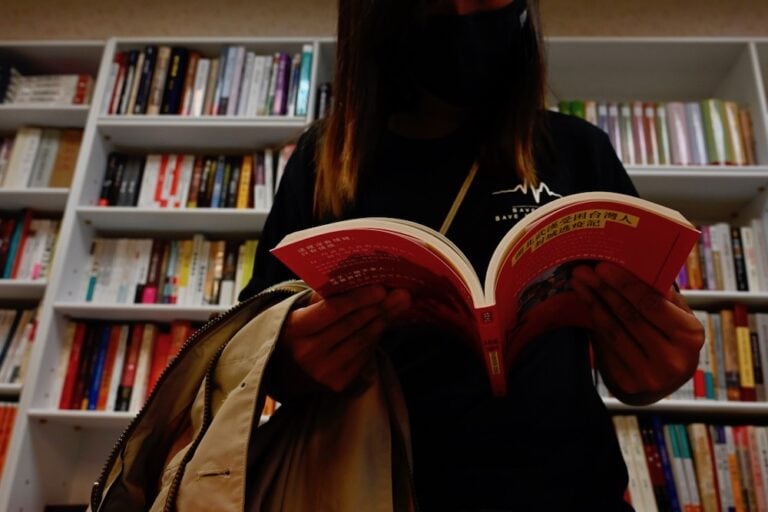The announcement of a sale of several major newspapers, magazine publications, and television stations in Taiwan has sparked concerns about media diversity and editorial independence.
UPDATE: Taiwanese media sale could threaten press freedom (CPJ, 10 December 2012)
(IFJ/IFEX) – October 23, 2012 – The International Federation of Journalists (IFJ) shares the serious concerns of its affiliate, the Association of Taiwan Journalists (ATJ), over threats to media diversity and basic working rights of media personnel, after the sale was announced of several major newspapers, magazine publications, and television stations in the country.
The ATJ has raised concerns about the impact that the sale of Next Media Group’s assets could have for media diversity and the potential negative impact on press freedom.
Taiwan’s media reported in mid-October that Hong Kong businessman and media mogul Jimmy Lai planned to sell his Taiwan-based print and television assets to a group of bidders including Jeffrey Koo, the chairman of Chinatrust Charity Foundation, William Wong, chairman of the Formosa Plastics Group (FPG), and a Singapore-based private equity fund.
This sale to the consortium of investors for approximately US$600 million was formally revealed by all the parties concerned, on October 18.
The deal, which includes the sale of Taiwan’s Chinese-language newspapers, Apple Daily, Sharp Daily, as well as Next Magazine and Next TV, will result in the full withdrawal of the Next Media Group from the Taiwan market, after 13 years.
Apple Daily is one of the most widely circulated newspapers in Taiwan, with over two million readers. It has been critical of the Communist Party regime in the Peoples’ Republic of China (PRC) and has held an independent editorial stance toward Taiwan’s Chinese Nationalist Party government and all other political forces in Taiwan.
Taiwan’s Financial Supervisory Commission (FSC) and the National Communications Commission (NCC) announced plans to investigate the intended purchase of Next Media by Koo and other investors on October 19.
Both Chinatrust Financial Holding Company and FPG are reported to have major business holdings in China.
Though PRC investment in Taiwan’s print, broadcast and television media is banned, its influence in the Taiwan media has grown dramatically in recent years, through investment by favourably disposed investors and the extensive use of so-called “embedded advertising” or “paid news” purchases.
“We share the concerns of our affiliate that the sales of media outlets in Taiwan have the potential to enormously affect its media landscape, and look forward to an independent enquiry establishing the potential outcomes on concentration of ownership in the country,” said the IFJ Asia Pacific.
In the wake of the announcements, the ATJ, which has no organisational affiliation with Apple Daily’s newly-formed union, has provided its support to the union and its workers.
The ATJ affirmed the legal right of the union to engage in collective bargaining with the new owners, to ensure working rights and editorial autonomy, and has encouraged Apple Daily employees to unite to protect their working rights and professional and editorial autonomy.
The Apple Daily union reportedly represents around 1,300 employees. Efforts are also now reportedly underway among Next TV employees to form their own labour union.
“We join the ATJ in calling on the Taiwan government to guarantee that the new owners respect the union’s legal standing to represent Apple Daily employees in collective bargaining processes. We also call on the government of Taiwan to ensure that editorial independence and workers’ rights are protected under new ownership,” said the IFJ Asia Pacific.
The IFJ also reported earlier in the year on its concerns for Taiwan’s press freedom, as the decision of the country’s National Communications Commission (NCC) to approve the expansion of the services of media giant Want Want China Times Group, was announced.
The Next Media Group sales follow protests in Taiwan against media monopolisation where approximately 10,000 people joined a September 1 demonstration organised by the ATJ and other media reform organisations, in the wake of the NCC decision.
The ATJ believes that the cases of the Want Want China Times Group and the Next Group highlight the need for clearer legislation to restrict cross-sectoral media monopolies, and calls for the establishment of a regulatory framework for the purchase of news media by conglomerates or financial holding companies that can ensure worker rights and editorial autonomy, professionalism and social responsibility.
“Diversity of media ownership, plurality and editorial independence are integral to democracy and Taiwan’s media must be supported by authorities to fulfil its democratic role, regardless of ownership,” said the IFJ Asia Pacific.


